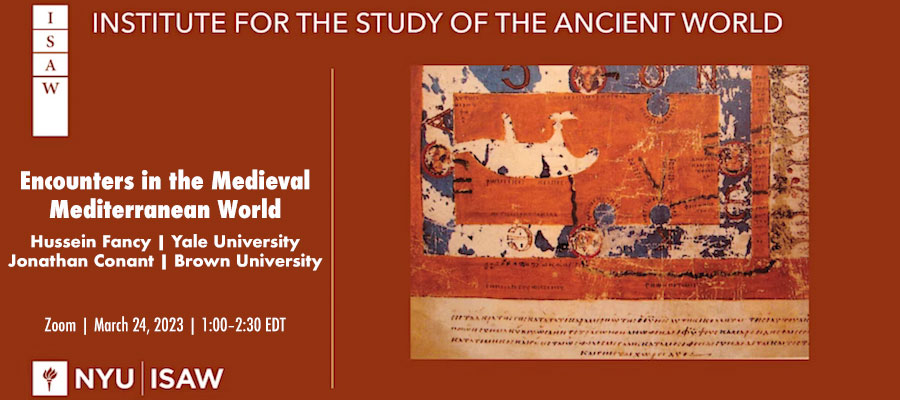Encounters in the Medieval Mediterranean World with Hussein Fancy (Yale University) and Jonathan Conant (Brown University), Institute for the Study of the Ancient World via Zoom, March 24, 2023, 1:00–2:30 EDT (UTC -4)
The Sea of Lies
Hussein Fancy, Yale University
The past century of scholarship has offered two competing views of the medieval Mediterranean: a zone of intense conflict or one of intense contact. Grounded in Latin, Romance, and Arabic sources, this lecture traces the activities of impostors, people who crowded the thirteenth- and fourteenth-century Mediterranean and force us to think beyond metaphors of contact and encounter to explain the relationships between Jews, Christians, and Muslims.
Hussein Fancy is Associate Professor of History at Yale University. His research focuses on the social and intellectual history of interactions between Jews, Christians, and Muslims in the medieval Mediterranean as well as the intersection of Latin and Arabic archives.
Beyond the Mediterranean: Rethinking Africa in Late Antiquity
Jonathan Conant, Brown University
Studies of North Africa between the fourth and the seventh century CE typically understand Egypt and the Maghrib within a Mediterranean frame. This talk asks how our understanding shifts if we consider the region from the perspective of continental Africa, including ties across the Sahara, up the Nile, and along the Red Sea and Indian Ocean coasts. One answer is that the same processes of empire that facilitated the circulation of people, goods, and ideas within the later Roman world also extended well beyond the Mediterranean, linking the economies, societies, and cultures of southern Europe, western Asia, and Africa into an increasingly coherent system.
Jonathan Conant is Associate Professor of History at Brown University. His research focuses on the social history of North Africa and the western Mediterranean in late antiquity and the early Middle Ages.
Advance registration required.
